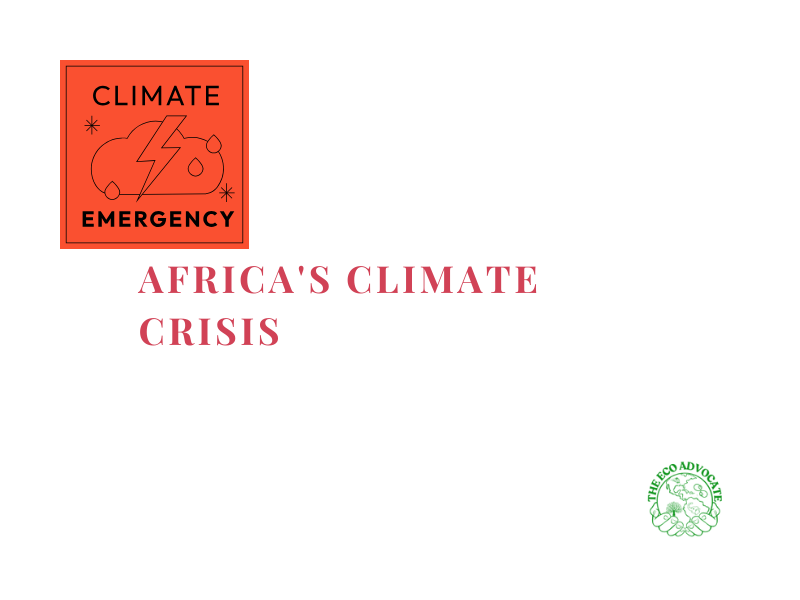Climate change is a pressing global issue, and Africa is among the most affected regions. Because of its unique geography and socio-economic conditions, the continent is particularly vulnerable to the adverse effects of a warming planet.
Here are the top five trending climate change issues in Africa and why they warrant our urgent attention and action.
Malaria and Disease Migration
Malaria has been a persistent health challenge in Africa for many years. However, with the onset of climate change, the disease is now posing an even greater threat. As global temperatures continue to rise and weather patterns change, the range of habitats suitable for the mosquitoes that carry malaria is expanding.
This means that previously unaffected areas are now at risk of malaria outbreaks, and the disease is spreading to new regions.
In light of this, healthcare systems are under increasing pressure to adapt to the changing circumstances and prevent a potential public health crisis.
Urban Heat Islands
In recent years, the phenomenon of urban heat islands has become increasingly prominent in Africa’s megacities. These areas have seen a rapid expansion of concrete and asphalt, leading to a significant reduction in natural landscapes.
As a result, urban regions have become highly absorptive and re-radiative of heat, resulting in substantially higher temperatures when compared to surrounding rural areas.
This rise in temperature not only aggravates the discomfort during heatwaves but also leads to a spike in energy consumption for cooling, thereby increasing the risk of heat-related illnesses.
To combat this issue, it is imperative to implement green initiatives such as planting trees and creating parks, which can help reduce the effects of urban heat islands and create a more pleasant and healthy environment for urban dwellers.
Extreme Weather Events
Africa has been witnessing a surge in the occurrence of extreme weather events, which are becoming more frequent and severe with each passing day.
These events, such as droughts and floods, are wreaking havoc on communities, agriculture, and economies, leaving behind a trail of destruction.
For instance, the recent cycle of drought and deluge in East Africa is a clear testament to how unpredictable and extreme the weather can become. These events are causing food shortages, displacement of people, and loss of life and livelihoods.
As a result, it has become increasingly crucial for the continent’s future to build resilience against such events.
Food and Water Security
Climate change poses an imminent threat to the safety and security of food and water.
The alterations in the climate patterns have a direct impact on crop yields and water availability, which in turn affects the production of food and access to clean water.
The consequences of this phenomenon are far-reaching, affecting socio-economic development, peace, and security, and can even lead to resource scarcity, thereby resulting in potential conflicts.
To ensure that the basic needs of Africa’s growing population are met, sustainable agricultural practices and water management strategies are indispensable.
Deforestation and Biodiversity Loss
The Congo Basin rainforest, which stands as the world’s second-largest rainforest after the Amazon, is currently facing a significant threat from deforestation. This poses a severe problem not only for climate change but also for the loss of biodiversity.
The Congo Basin rainforest is home to numerous species and has been a crucial source of livelihood for millions of people. The protection of these forests is not just about conservation, but it is also about maintaining the ecological balance and ensuring economic stability for the communities that rely on them.
Conclusion
The climate crisis in Africa poses a significant and multifaceted challenge that demands a coordinated approach from governments, businesses, civil society, and individuals alike.
To mitigate the impacts of climate change, we need to invest in research, technology, and infrastructure that can withstand its effects.
Education and awareness are also pivotal in mobilizing communities to take action.
We must realize that the consequences of inaction are severe, and the time to act is now. By understanding these complexities and their implications, we can begin to take the necessary steps towards a sustainable and resilient future for Africa.
Let us all contribute towards the solution and work together to make a positive impact.
Call to Action
We urge our readers to spread the word about this post, initiate constructive discussions, and actively participate in both local and global efforts that strive to fight climate change. Remember, every step towards this cause, no matter how small it may seem, can make a significant difference.

